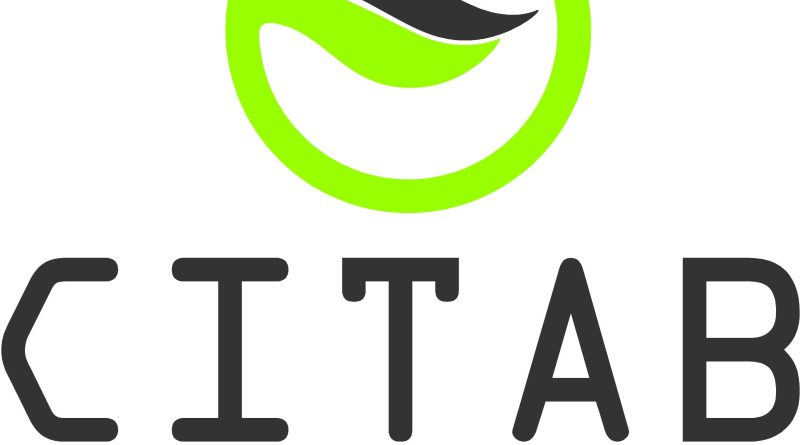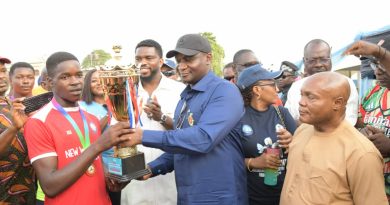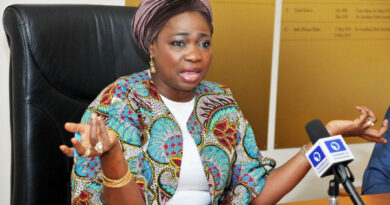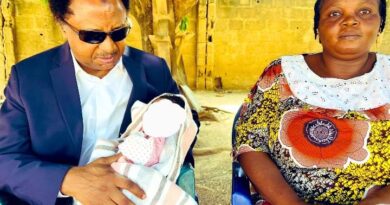International White Cane And Safety Day: CITAB Calls For Government Action On Visually Impaired Rights
The Centre for Infrastructural and Technological Advancement for the Blind (CITAB) urges all THE three levels of government in Nigeria to sincerely prioritize the concerns of the visually impaired within our society.
This announcement was included in a press statement issued on Tuesday and signed by Mr. Jolomi Fenemigho, the Executive Chairman of CITAB, in celebration of International White Cane and Safety Day, observed annually on the 15th day of October.
The group’s Executive Chairman, emphasized the importance of the celebration and the meaningful impact it has on the visually impaired community.
According to Fenemigho, “White Cane and Safety Day is a time when we are at our strongest. We unite, regardless of our diverse locations, personalities, traditions, and beliefs, with a single voice, marching to be heard and seen by all. Our guide canes are not tools to be ashamed of, but symbols of determination, perseverance, and fortitude.”
He further emphasized the importance of reflecting on the achievements and shortcomings of local, state, and federal governments in addressing the needs of the visually impaired community in Nigeria as they celebrate this year’s White Cane and Safety Day.
Fenemigho said, “It is crutial that we highlighted the need to assess both the progress and the gaps in how the local, state and federal governments have addressed the needs of the visually impaired community in Nigeria. As we celebrate this year’s White Cane and Safety Day, it is an opportune moment to recognize the achievements made in improving accessibility, education, and employment opportunities. At the same time, it is essential to acknowledge the areas where efforts have been insufficient, such as in policy enforcement and resource allocation. This reflection serves as a catalyst for continued advocacy and action, ensuring that the rights and needs of the visually impaired are prioritized and effectively met.”
Fenemigho highlighted the poor condition of many infrastructures and public buildings in the country, urging authorities to adhere to accessibility standards and policies.
He emphasized the need for public buildings, bridges, walkways, pavements,, sidewalks ETC, to be made accessible for visually impaired citizens of Nigeria.
He said, “For years, the blind community has been complaining about the inaccessibility of public buildings and structures, such as sidewalks, walkways, pavements, pedestrian bridges, and roads, with all our pleas falling on deaf ears. We demand that all public buildings and structures undergo thorough examination to ensure compliance with accessibility standards and undergo total renovation to make them accessible for the visually impaired community in Nigeria and The authority responsible for constructing these facilities at all government levels must ensure that construction blueprints align with the building code. The Discrimination against Persons with Disabilities (Prohibition) Act, 2018, Part 2, Section 7, Subsections 1, 2, and 3, mandates this scrutiny. Subsection 1 requires that plans for public structures be reviewed by the relevant authority to ensure conformity with the building code. Subsection 2 prohibits the approval of building plans by any government entity or individual if they lack accessibility provisions. Subsection 3 states that any officer who approves or directs the approval of a non-compliant building plan commits an offense and, upon conviction, faces a fine of at least N1,000,000, a two-year imprisonment term, or both.”
The head of CITAB highlighted the significant disparity in the quality of education for visually impaired students.
He urged government educational agencies, including the Ministry of Education, SUBEB, UBEB, and others, to consult with disability-focused organizations and special needs educators. This collaboration would enhance their understanding and improve the educational experience for visually impaired individuals in Nigeria.
He voiced his concerns, saying, “It seems the Ministry of Education, SUBEB, UBEB, and other government bodies are in the dark about the intricacies of teaching students with blindness. It’s not a straightforward task and requires a delicate touch. Picture a classroom where blind students are left in the shadows, waiting for the next cue, while their sighted peers are busy jotting down notes from the board. Now, which group do you think is getting the most out of this lesson? Where are the screen reader-enabled laptops, the digital note-takers, the recorders, the refreshable braille devices, and the braille machines? Where are the vital tools and gadgets that blind students need to stay in the game academically? This scenario highlights the hurdles faced by visually impaired students in many mainstream schools in Nigeria today, and yet, nothing is being done about it in a country that claims to embrace inclusivity.”
Continuing, Fenemigho observed, “Many teachers in these schools are missing the mark, lacking the qualifications needed to truly engage with and understand their visually impaired students. It’s not just about picking anyone off the street for a teaching role; it’s essential to find those with a real passion and the right touch for special needs education. These educators need to be ready to make a genuine connection and have the skills to meet their students’ unique needs. Such qualities should be carefully weighed and measured during their evaluation.”
He went on to say, “The Ministry of Education, SUBEB, UBEB, and others need to stop playing a guessing game, as it’s evident that their current methods aren’t hitting the mark for visually impaired students. It’s time for these agencies to seek a little expert advice from those well-versed in the nuances of special needs education such as disability based organizations and special needs educators, who can shed light on the best way to handle such a delicate situation.”
He further conveyed his dissatisfaction with the lack of job opportunities for visually impaired individuals in Nigeria, stressing the need for governments to do the needful.
Fenemigho asserted that “the government should initiate annual or biannual recruitment exercises into the civil service commission specifically for the disability community in Nigeria to ease the economic squeeze. Many individuals with disabilities, particularly the visually impaired, are struggling to find their place in the current Nigerian landscape, while the government seems content to sit back and watch. I wonder how long disabled graduates must continue to be left out in the cold by those in power, live in a country where landing a job depends more on who you rub shoulders with than on merit, and be forced to resort to begging or groveling just to get by.”
In conclusion, Fenemigho urges all levels of government to sincerely prioritize the needs of the visually impaired community in Nigeria.
He remarked, “As we commemorate International White Cane and Safety Day, I emphasize the importance of this occasion as a symbol of unity and strength for our community. It is crucial to reflect on both the achievements and the gaps in governmental efforts regarding accessibility, education, and employment opportunities for the visually impaired. I call upon authorities to adhere to accessibility standards in public infrastructure and to foster collaboration with disability-focused organizations to improve educational experiences. Moreover, it is vital that employment for the disabled becomes a priority through targeted recruitment initiatives. The time has come for decisive action to ensure that the rights and needs of the visually impaired are not only acknowledged but also effectively addressed, paving the way for a truly inclusive society.”




